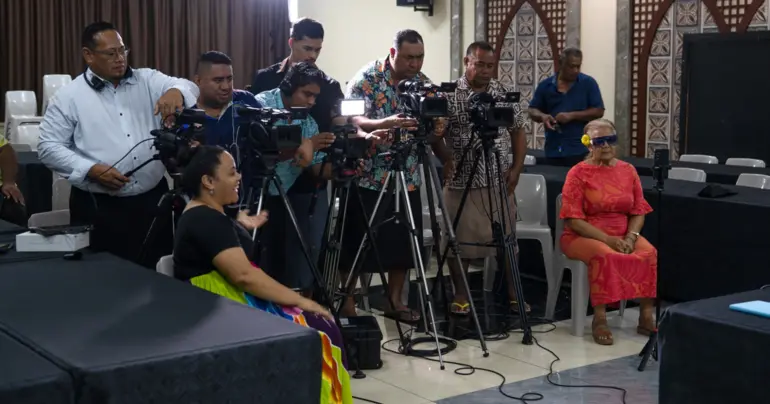Power of assent correction duly noted
 By The Editorial Board
•
25 January 2021, 4:00AM
By The Editorial Board
•
25 January 2021, 4:00AM
The Attorney General, Savalenoa Mareva Betham-Annandale, released a statement last Friday denying the imputations of an editorial in last Friday’s edition of the Samoa Observer that question why the head of the Ministry of Prime Minister and Cabinet can sign bills into law, if they are not formally assented by the Head of State.
Savalenoa said in her statement that the proposition put forward by this newspaper through its editorial was factually incorrect, as it is the Council of Deputies who take on that role in the absence of the Head of State.
“The only authority permitted by the constitution to act in the Head of State’s absence is the Council of Deputies,” Savalenoa said in the statement. “Article 23 provides that the Council of Deputies performs the functions of the Head of State in the absence of the Head of State.
“One such function includes the function to assent an Act of Parliament as provided for under Article 60 of the Constitution.
“Therefore, if the Head of State is absent, then the Council of Deputies may assent [to] the Act, not the C.E.O. of [the] M.P.M.C.”
The editorial took its cue from the debate on the floor of the Parliament last Wednesday between the Prime Minister Tuilaepa Dr. Sa'ilele Malielegaoi and the Salega M.P. Olo Fiti Vaai, with the latter questioning the authority of the Ministry of Prime Minister and Cabinet’s C.E.O. to give assent to a law after its passage by the Parliament.
According to Olo, a bill if not signed into law by the Head of State within a seven-day window, will go to the Chief Executive Officer of the M.P.M.C. Agafili Shem Leo to give assent.
It is worthwhile noting that Members of Parliament have privileges when making statements during a session of the Legislative Assembly and thus enjoy immunity from civil or criminal liability.
Nevertheless the argument promulgated by the M.P. and the editorial (A bureaucrat with absolute power?) has no basis in law, according to the statement from the Attorney General, who went further and stated that it is a function of the Council of Deputies under Article 23 of the Constitution to give assent to new laws in the absence of the Head of State.
We thank the Attorney General for taking time to point out the error in our editorial, as our competencies in the interpretation of the law can fall short, though we strive to do our best even when the Legislative Assembly is working in overdrive to pass a raft of legislation.
The editorial argued last Friday that the Council of Deputies should take on the role of acting to give assent to the law in the absence of the Head of State, so thanks to the correction by the Attorney General, we now know that those powers do lie with the Council of Deputies and not with a bureaucrat.
On that note, we acknowledge the statements that have been forthcoming from the Attorney General’s Office in recent weeks, clarifying the different provisions contained in the suite of L.T.C. Acts, following their passage last December.
As disseminators of information to the wider public, including stories on new laws passed by the Parliament, we have a responsibility to our readers to ensure clarity when reporting on Government legislation that ultimately impacts the citizens.
And we acknowledge, too, that not all laws passed by the Legislative Assembly are perfect. Ambiguity in the text of the enacted laws can lead to confusion, and over the long-term become a hurdle in the dispensation of justice.
This was the case for the Electoral Act 2019 – which the Office of the Electoral Commission has proposed amendments to and submitted to the Parliament for its consideration – after its application in court during electoral petition proceedings in October-November last year saw conflicting interpretations by lawyers.
We look forward to the Attorney General’s Office continuing to interpret or clarify ambiguity in our laws as the Legislative Assembly and legislators continue to do their work in the lead-up to the 2021 General Election and a new term of the Parliament.
And ultimately as a media organisation we have a responsibility to continue to keep the nation informed on the Government’s legislative agenda, while promoting adherence to processes and democratic norms.
 By The Editorial Board
•
25 January 2021, 4:00AM
By The Editorial Board
•
25 January 2021, 4:00AM










